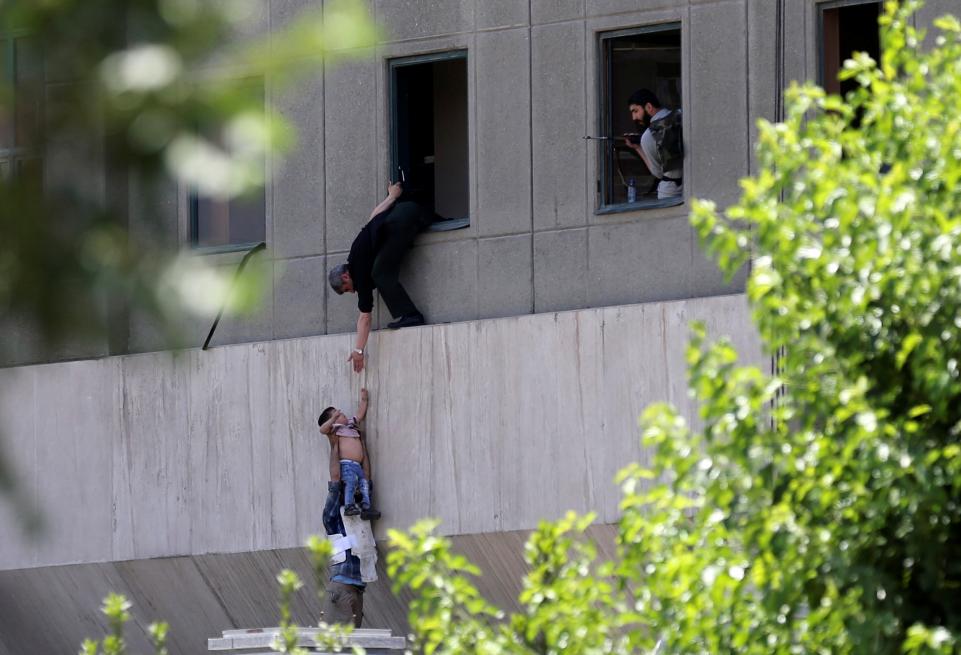
A boy is evacuated during an attack on the Iranian parliament in central Tehran, Iran (Reuters)
June 20, 2017
As in 2015 and 2016, ISIS is using the Muslim holy month of Ramadan to encourage and carry out a rash of deadly attacks.
During Ramadan in 2016, ISIS killed an estimated 421 people and injured 729 more. Unfortunately, 2017 appears to be following the same deadly pattern. In the last three weeks, ISIS has carried out more than 15 deadly terrorist attacks in Afghanistan, Iraq, Iran, Egypt, the UK, Australia, among others, killing and injuring hundreds of civilians, most of them Muslims.
These acts of violence include May’s brutal attack against Christian Copts in Egypt, which left at least 28 people dead. In June, ISIS was able to attack the Iranian capital, Tehran, for the first time, blasting its way into the Iranian parliament and Khomeini’s mausoleum, killing 12 people. On June 4, ISIS claimed responsibility for an attack in London that killed eight people.
Iraq and Syria, two countries that suffer the most from ISIS’s cruel acts, have also endured devastating attacks in recent weeks, including a slaughter at a Baghdad ice cream shop where families with children were enjoying a late-night Ramadan snack. For the first time, ISIS took responsibility for an attack in Jerusalem -- a shooting and stabbing attack that killed a young female police officer. (Hamas disputes ISIS’s claim, and insists that another terror organization was responsible).
Why attack during Ramadan?
The month of Ramadan, the holiest month in the Islamic calendar, is for the overwhelming majority of Muslims a month of praying, fasting, self-reflection and acts of generosity.
ISIS’s twisted interpretation of Ramadan focuses on bringing death and destruction. As one ISIS fighter said, “Ramadan is the holy month of Jihad,” and, “People want to win the honor of attaining martyrdom in Ramadan.” For ISIS, a bloody Ramadan campaign serves a number of objectives, namely amplifying their message: death to their enemies, including Muslims who rejects their interpretation of Islam.
This year, the terror organization is also trying to project an image of strength, despite losing territory in Iraq and Syria. The international coalition is poised to claim victory over Mosul, and has launched its campaign to take over Raqqa, in eastern Syria. This is a serious blow to ISIS, but as attacks over recent weeks have shown, it does not mark the end of the ISIS threat. Quite the opposite: from its current defensive position, ISIS will continue to lash out in the Middle East, Europe and around the world, hoping to demonstrate its continued strength and will.